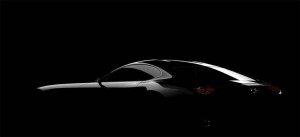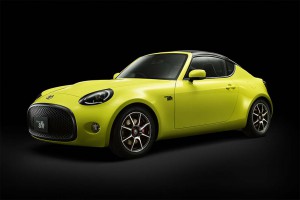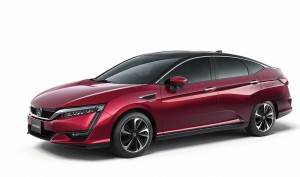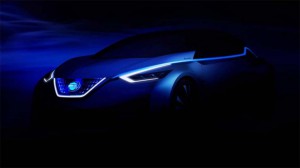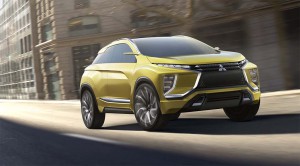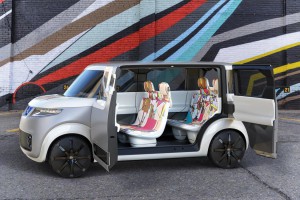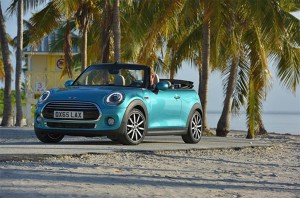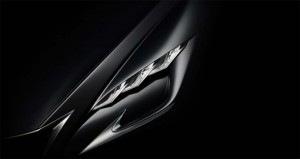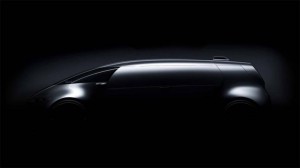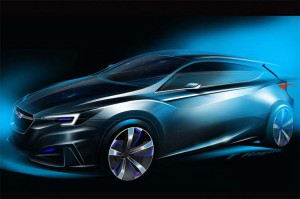The biennial Tokyo Motor Show has a history of introducing some wild, weird and wacky vehicles, and this year will be no exception. Honda, for one, will be introducing its Wander Walker, a concept vehicle that bears an uncanny resemblance to a phone booth on wheels.
But don’t let the crazy concepts fool you. There’s a serious side to the Tokyo Motor Show, as well, and this year’s event will bring out an assortment of luxury sedans, sports cars and alternative-fuel vehicles that will have a big impact on the global industry in the years to come.
While foreign makers will have a minimal presence at the 2015 show, Japanese makers such as Toyota, Nissan, Honda and Mazda will more than offset that absence. Here are a dozen of the most important debuts to come in Tokyo this week:
Toyota S-FR. The Japanese giant will have an assortment of products to reveal, reflecting its dominance of the global automotive market. That includes the S-FR Concept. It’s a show car in name only, however. A production version of this slightly retro sports car is expected to reach showrooms in the near future. Whether that includes the U.S. market is uncertain, as it would be smaller and less expensive than the already compact sports car Toyota sells in the States as the Scion FR-S.
Mazda RX. Actually, Mazda hasn’t yet revealed the name of the sports car it’s introducing in Tokyo this week. But the teaser image it’s released suggests it very well could mark the long-awaited revival of the old Mazda RX line. The first appeared in 1978 and the RX-7 badge was used for a procession of updates through 2002. A year later, Mazda followed up with the unusual four-door RX-8, but slumping sales led it to end production in 2012. What Mazda will call the new sports car is one big question. The other is whether the little Japanese maker will power the new sports car with a new version of its Wankel rotary engine.
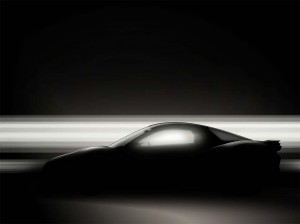
Yamaha isn't revealing much about the concept it's bringing to the Tokyo Motor Show aside from it has four wheels.
Yamaha Sports Car. If the name Yamaha makes you think of something riding on two wheels, you’re not alone. But the compact perhaps best known for its motorcycles is out the change perceptions. It plans to unveil a new concept car at the Tokyo Motor Show later this week. Word has it the sports car’s shape was penned by Gordon Murray, better known for his Formula One race cars. While officially a concept, there are hints that Yamaha would like to put the show car into production, possibly with the help of Toyota.
Honda FCV. Honda has already teased us with what could be the wackiest of this year’s Tokyo Motor Show concepts. But it’s also got some serious products to reveal. That includes an all-new fuel-cell vehicle expected to be called the FCV. Honda plans to launch a hydrogen car in 2016, joining rivals such as Toyota and Hyundai in the push to use what proponents call the greenest source of power on the planet. Roomy enough for five, it can travel over 400 miles per tank, a fill-up taking just five minutes.
Toyota FCV Plus. Not to be outdone, Toyota has its own hydrogen concept car set to debut, and the FCV Plus adopts a rather radical design that looks like it drove off the set of a sci-fi flick. The powertrain technology lies below, rather than in front of, the driver, the fuel cell stack mounted between the front tires and the four electric motors built into its wheels. The bubble-car design creates a massive interior for passengers and cargo.
Nissan Autonomous EV Concept. The second-largest Japanese maker isn’t saying much about this sleek concept, offering only a carefully cropped teaser image of what may become the next-generation Nissan Leaf battery-electric vehicle. It’s expected to significantly increase the range of the current Leaf – the 2016 model yielding just over 100 miles per charge. Expect the Nissan concept to also feature autonomous driving capabilities – no surprise as Nissan promises to have its first fully self-driving vehicle in production by 2020.
Mitsubishi eX. The Japanese maker plans to debut several concepts in Tokyo, including the Emirai, an edgy design expected to reveal some of its plans to join the push for autonomous driving. The Mitsubishi eX is expected to be a little closer to production, and will take the maker’s current battery-car technology a step forward, and into something a good bit larger than the little i-MiEV. The eX is roughly the size of the current Mitsubishi Outlander Sport and will hint at the upcoming replacement’s design. Producing 187-hp, it’s expected to get nearly 250 miles per charge.
Nissan Teatro for Dayz. The Japanese maker will reveal a full 20 different products in Tokyo, and one of the more quirky – yet potentially serious – models goes for the odd name, Teatro for Dayz. The exterior isn’t necessarily cutting edge, reminiscent of the boxy Nissan Cube, but it’s the functionality that makes it distinctive. The concept is designed to cater to the desire of younger drivers to have the latest in technology while keeping them interested in cars. Virtually every inch of the Teatro’s interior is covered with reconfigurable displays, as are some exterior panels, making it a rolling social media machine.
Mini Convertible. As with other recent remakes, the 2017 Mini Convertible grows a little larger in every dimension than the outgoing ragtop, with a bit more emphasis on practicality this time around. But the fun factor isn’t being played down, and like the new Mini Hardtop launched last year, the Convertible now shares its underlying architecture, as well as its powertrain options, with Mini’s sibling BMW brand. The ragtop itself will go up or down in just 18 seconds – and at speeds up to 18 mph.
Lexus LS. For now, Lexus isn’t saying much beyond dropping hints it will bring a concept car to the Tokyo Motor Show meant to “capture the company’s vision of progressive luxury.” But the show car is all but certain to give us a clear sense of direction for the next-generation Lexus LS flagship. In keeping with other recent models, expect to see a much more emotional design form, starting with the big “spindle grille.” And considering the high-tech emphasis of competing European flagships, such as the new BMW 7-Series and Mercedes-Benz S-Class, the Lexus concept will be loaded with the latest in technology.
Mercedes-Benz Concept. The German maker is one of the few European marques planning something for Tokyo, and it’s planning to uncover a concept vehicle it describes as “a vision for future generations.” Looking a lot like the S-Class of minivans, it will be “Luxurious, autonomous and progressive,” and likely to pick up where the Mercedes F 015 concept, revealed in Detroit last January, left off. Expect a living room-like interior, windows that double as videoscreens, and a super-clean hydrogen fuel-cell drivetrain.
Subaru Viziv. Subaru actually will have two significant unveilings in Tokyo, starting with a thinly disguised “concept” version of the next-generation Impreza. It will take a bigger reach, however, with the Viziv, short Vision for Innovation, and the latest in a series of concepts showcasing advanced telematics and hybrid technologies. The basic shape, as well as the through-the-road all-wheel hybrid drive, will likely influence future versions of Subaru production models, including the Forester and Outback.
There will be a number of other previews worth noting briefly, including a new crossover from Datsun, the reborn brand Nissan has brought back for emerging markets like India. Nissan will reveal a sheet metal version of its Concept 2020 Vision Gran Turismo videogame car. Toyota will show off the minimalist Kikai and also introduce a pint-sized robot based on the system it sent into orbit on the International Space Station.
Meanwhile, Fiat Chrysler’s Jeep brand will stage a news conference at the Tokyo Motor Show. While it isn’t bringing anything unique for the event, it’s return will, in itself, be notable since the maker hasn’t participated in the biennial Tokyo show in a decade.

